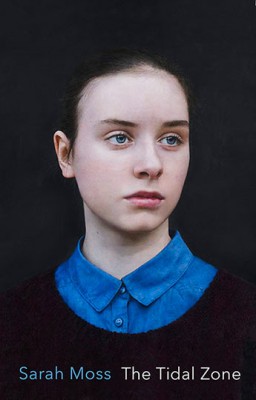
There’s a kind of suspension of time that happens when you crack open a new book by a favourite author. Will she live up to the promise of those previous books you loved? Has she lost her touch? Are you about to suffer a crashing disappointment?
Moss’s main interests, judging by her previous works, are the role of women in society and the ways in which families function (and fail to function). In this novel, the main character is, for a change, a man – a stay-at-home dad with a GP wife and two school-age daughters. As the book opens, his seemingly stable world is about to be nudged off its axis by a phone call informing him that his elder daughter, Miriam, has stopped breathing at school.
What follows is an exploration of the family dynamic under intense pressure. No one knows why Miriam stopped breathing; it seems to be a rare form of anaphylaxis, but tests fail to reveal any allergy. Will it happen again? Is it genetic – is their other daughter at risk? Each of the relationships in the book fractures and re-sets, becomes something new in the wake of the brush with death.
More than that, though, Moss is interested in the idea of life as a narrative construct. Adam understands this idea. A plan, he explains, is a story we tell ourselves about the future, a way to try to capture the uncontrollable. Likewise, “a diagnosis is a story, brings a story’s promise of safe conduct through time and place to an anticipated ending”. Adam has a PhD in art history, and during the course of the book is engaged in producing content for a self-guided tour app of Coventry Cathedral. Facts from this project about the bombing of Coventry are sprinkled through the novel, stories of people who escaped death by coincidences over which they were powerless, stories of people who took every precaution and were killed anyway. The parallels are a little obvious, but honestly, these dollops of history were so interesting that I kind of didn’t care.
One thing I did care about was the amount of emotional labour expended over Adam’s constant self-justification as a stay-at-home parent. I mean, I’m always, always happy to give way to some righteous fury about stereotyped gender roles, but both the quantity and quality of side-eye directed at Adam by background characters got to be a little much for me. I know it’s a subject in which Moss has a particular interest, and rightly so, but it wasn’t necessary to have so much of it in this particular novel, and at times it derailed the narrative thrust. (I felt similarly about the overdone uselessness of Giles, the husband in Moss’s previous novel, Night Waking – which I otherwise loved and heartily recommend, especially to any parent who’s had to read The Gruffalo fifteen times in one sitting.) (Fans of Moss will also note Giles and Anna’s cameo in The Tidal Zone.) I would also have liked a more definite ending, because that’s what I like, but I can hardly complain about not having one when the whole point of the novel is that life doesn’t have tidy endings. The protagonist himself tells me: “You think you want a story, you think you want an ending, but you don’t. You want life. You want disorder and ignorance and uncertainty.”
That moment of anticipation did not lead to disappointment in this case. The portrait this novel paints of family life is utterly real, beautifully realised, and adds up to a page-turner despite the seemingly mundane subject-matter.